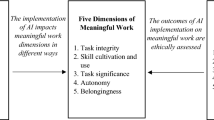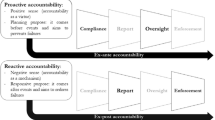Abstract
The advent of the intelligent robot has occupied a significant position in society over the past decades and has given rise to new issues in society. As we know, the primary aim of artificial intelligence or robotic research is not only to develop advanced programs to solve our problems but also to reproduce mental qualities in machines. The critical claim of artificial intelligence (AI) advocates is that there is no distinction between mind and machines and thus they argue that there are possibilities for machine ethics, just as human ethics. Unlike computer ethics, which has traditionally focused on ethical issues surrounding human use of machines, AI or machine ethics is concerned with the behaviour of machines towards human users and perhaps other machines as well, and the ethicality of these interactions. The ultimate goal of machine ethics, according to the AI scientists, is to create a machine that itself follows an ideal ethical principle or a set of principles; that is to say, it is guided by this principle or these principles in decisions it makes about possible courses of action it could takea. Thus, machine ethics task of ensuring ethical behaviour of an artificial agent. Although, there are many philosophical issues related to artificial intelligence, but our attempt in this paper is to discuss, first, whether ethics is the sort of thing that can be computed. Second, if we are ascribing mind to machines, it gives rise to ethical issues regarding machines. And if we are not drawing the difference between mind and machines, we are not only redefining specifically human mind but also the society as a whole. Having a mind is, among other things, having the capacity to make voluntary decisions and actions. The notion of mind is central to our ethical thinking, and this is because the human mind is self-conscious, and this is a property that machines lack, as yet.
Similar content being viewed by others
Notes
Haugeland (1989, p. 2).
Winston (1984, p. 2).
Tanimoto (1987, pp. 6–7).
Simon (1987, p. xi).
Searle (1996, p. 41).
Searle (1987, p. 210).
Turing (1950, pp. 433–460).
Winston (1984, p. 380).
Searle (1990, p. 21).
Chalmers (1996, p. 321).
This view quoted by McCorduck (1979, p. 70).
Allen et al. (2000).
Moor (2006).
Ethical in the sense of ‘having an ethical property’ not a morally commendable/right decision.
Anderson and Anderson (2007, p. 16).
Kant (1993, p. 30).
LaChat (1986).
Kant (1993, p. 36).
Ibid., p. 30.
Beavers (2009).
Anderson and Anderson (2007, p. 19).
DeBaets (2014).
Ibid.
Gunkel (2012, p. 18).
Wittgenstein (1976, Part I. Sec 243–244).
Nagel (1998, p. 519).
Ibid.
Ibid., p. 521.
Ibid., p. 523.
McGinn (1997, p. 533).
Lycan (1987, p. 76).
Ibid.
Searle (1994, p. 95).
Ibid.
See, Nath (2016).
Nath (2009).
References
Allen C, Varner G, Zinser J (2000) Prolegomena to any future artificial moral agent. J Exp Theor Artif Intell 12(3):251–261
Anderson M, Anderson SL (2007) Machine ethics: creating an ethical intelligent agent. AI Mag 28(4):15–26
Beavers AF (2009) Between angels and animals: the question of robot ethics, or is Kantian moral agency desirable? In Association for practical and professional ethics. Eighteenth annual meeting, Cincinnati, Ohio, March 5–8. http://faculty.evansville.edu/tb2/PDFs/Robot%20Ethics%20-%20APPE.pdf. Retrieved on 1 Oct 2017
Chalmers DJ (1996) The conscious mind. Oxford and New York: Oxford
DeBaets AM (2014) Can a robot pursue the good? Exploring artificial moral agency. J Evolut Technol 24(3):76–86
Gunkel DJ (2012) The machine question: critical perspectives on AI, robots, and ethics. MIT Press, Cambridge
Haugeland J (1989) Artificial intelligence: the very idea. The MIT Press, Cambridge
Kant I (1993) [1785] Grounding for the metaphysics of morals. Translated by Ellington, James W (3rd Edn), Hackett
LaChat MR (1986) Artificial intelligence and ethics: an exercise in the moral imagination. AI Magz 7(2):70–79
Lycan WG (1987) Consciousness. The MIT Press, Massachusetts
McCorduck P (1979) Machines who thinks. W.H. Freeman and Company, San Francisco
McGinn C (1997) Can we solve the mind–body problem? In: Ned B, Owen F, Güven G (eds), The nature of consciousness, The MIT Press, Cambridge
Moor JH (2006) The nature, importance and difficulty of machine ethics. IEEE Intell Syst 21(4):18–21
Nagel T (1998) What it is like to be a bat. In: Ned B, Owen F, Güven G (eds), The nature of consciousness, The MIT Press, Cambridge, MA
Nath R (2009) Philosophy of artificial intelligence. A critique of the mechanistic theory of mind. The Universal Publishers, Boca Raton
Nath R (2016) Can naturalism explain consciousness: a critique. Artif Intell Soc J Knowl Cult Commun. doi:10.1007/s00146-016-0671-6
Searle JR (1987) Minds and brains without programs. In: Blakemore C, Greenfield S (eds), Mindwaves: thoughts on intelligence, identity, and consciousness, Bail Blackwell, Oxford
Searle JR (1990) Is the brain a digital computer? Proc Address Am Philos Assoc 64(3):21–37
Searle JR (1994) The rediscovery of the mind. Harvard University Press, Cambridge
Searle JR (1996) Minds, brains and science. Harvard University Press, Cambridge
Simon HA (1987) Guest foreword. In: Stuart CS (ed), Encyclopedia of artificial intelligence, vol 1, Wiley, New York
Tanimoto SL (1987) The elements of artificial intelligence. Computer Science Press Inc, Maryland
Turing AM (1950) Computing machinery and intelligence. Mind 49:433–460
Winston PH (1984) Artificial intelligence. Addison-Wesley Publishing Company, London
Wittgenstein L (1976) Philosophical investigations. Anscombe GEM (translated), Basil Blackwell, Oxford
Author information
Authors and Affiliations
Corresponding author
Additional information
aAnderson, S. & Anderson, M., “The Consequences for Human Beings of Creating Ethical Robots” in Proceedings of AAAI Workshop Human Implications of Human-Robot Interaction, Vancouver, BC, Canada, July, 2007.
Rights and permissions
About this article
Cite this article
Nath, R., Sahu, V. The problem of machine ethics in artificial intelligence. AI & Soc 35, 103–111 (2020). https://doi.org/10.1007/s00146-017-0768-6
Received:
Accepted:
Published:
Issue Date:
DOI: https://doi.org/10.1007/s00146-017-0768-6




